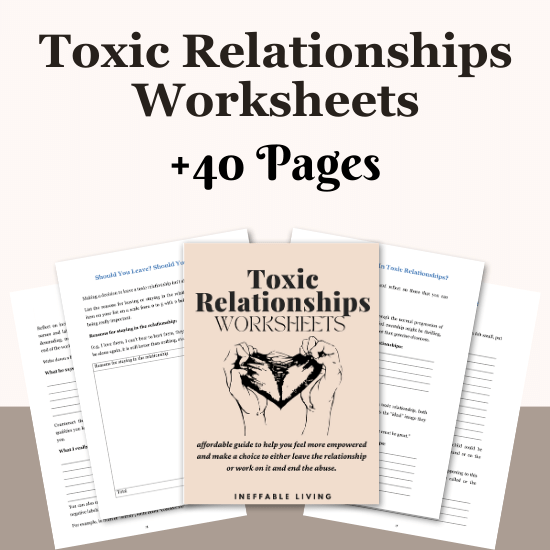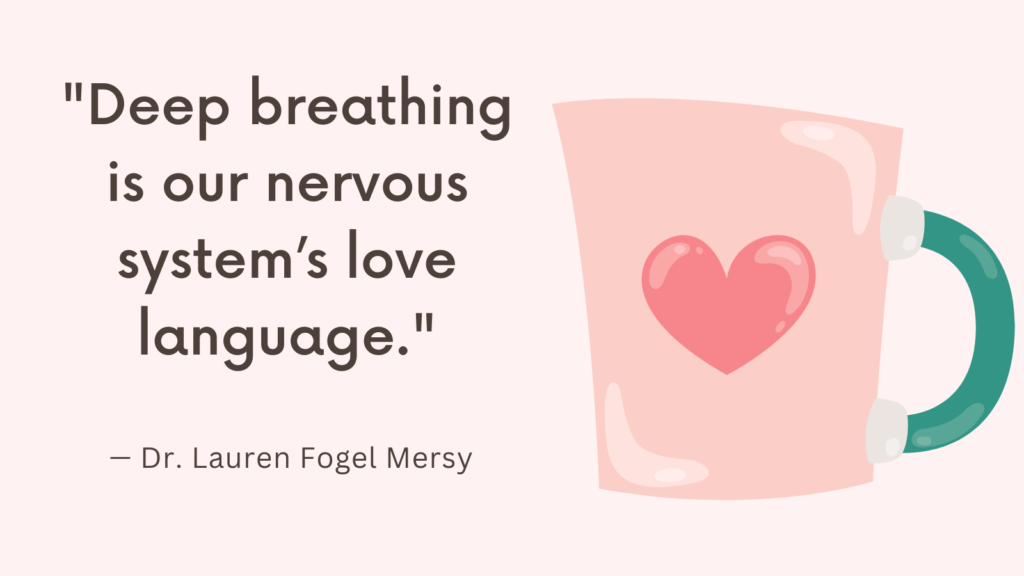This post contains “Narcissistic Abuse Syndrome Quiz” along with helpful tips to overcome it.
What Is Narcissistic Abuse Syndrome?
Narcissistic Abuse Syndrome, also known as Narcissistic Victim Syndrome, is a term used to describe the psychological and emotional impact of being in a relationship with a narcissistic individual.
This syndrome encompasses a range of symptoms and effects that result from sustained exposure to narcissistic abuse.
Individuals who have been subjected to narcissistic abuse often experience a profound sense of powerlessness, confusion, and emotional distress.
The abuser’s manipulative and controlling behaviors can erode the victim’s self-esteem, autonomy, and overall well-being.
Related: 8 Stages Of Healing After Narcissistic Abuse (+FREE Breakup Recovery Worksheets)
Narcissistic Abuse Syndrome Quiz
Results
#1. Have you been in a relationship with someone who constantly seeks admiration and attention from others, while showing little empathy or genuine care for your feelings?
#2. Do you often feel anxious, fearful, or on edge around this person, fearing their anger or disapproval?
#3. Have you noticed that this individual frequently belittles, criticizes, or insults you in ways that undermine your self-esteem?
#4. Have you experienced emotional or psychological manipulation, such as gaslighting, where the person denies or distorts reality to confuse or control you?
#5. Do you find yourself constantly walking on eggshells, carefully monitoring your words and actions to avoid triggering their anger or disappointment?
#6. Are you frequently blamed for problems or conflicts, even when they are clearly not your fault?
#7. Do you often doubt your own perceptions, feelings, or memories due to the constant undermining and invalidation by this individual?
#8. Have you observed a lack of reciprocity or fairness in the relationship, where your needs and opinions are consistently disregarded?
#9. Do you find it difficult to imagine a life without this person, even though the relationship is causing significant emotional pain?
We will not sell your information. All results are kept confidential.
This quiz is for informational purposes only. It is not meant as a diagnostic or assessment tool.
Results
The questions above represent common signs of narcissistic abuse syndrome. If you have answered “yes” to several of these questions, it may indicate the presence of Narcissistic Abuse Syndrome.
However, it’s important to consult with a mental health professional for a comprehensive evaluation and personalized guidance.
Related: Top 12 Traits of a Narcissist
How to Overcome Narcissistic Abuse Syndrome?
Overcoming Narcissistic Abuse Syndrome is a complex and challenging process that requires support, self-reflection, and professional guidance.
Here are some strategies and steps to help you on your journey to healing:
1. Recognize the abuse:
The first step is acknowledging and accepting that you have been a victim of narcissistic abuse.
Educate yourself about narcissistic personality disorder and the tactics they use to manipulate and control others.
Understanding the dynamics of abuse can help you detach from self-blame and develop clarity about your experiences.
2. Seek support:
Building a support network is crucial for recovery.
Reach out to trusted friends, family members, or support groups who can provide empathy, validation, and a safe space to share your emotions.
Consider seeking therapy from a mental health professional who specializes in trauma and abuse recovery.
They can offer guidance and techniques tailored to your specific needs.
3. Establish boundaries:
Setting clear boundaries is essential to protect yourself from further harm.
Identify your needs, values, and limits, and communicate them assertively with the abusive individual or cut off contact if necessary.
Be firm in enforcing your boundaries and prioritize your well-being.
Related: How To Set Boundaries With A Narcissist?
4. Practice self-care:
Engage in self-care activities that promote physical, emotional, and mental well-being.
This can include exercise, meditation, journaling, spending time in nature, engaging in hobbies, or seeking relaxation techniques.
Prioritize self-compassion and practice daily acts of kindness towards yourself.
5. Challenge distorted beliefs:
Narcissistic abuse often leads to distorted beliefs about oneself, such as feeling worthless, undeserving, or responsible for the abuse.
Challenge these negative self-perceptions by focusing on your strengths, achievements, and positive qualities.
Engage in positive affirmations, self-reflection, and cognitive restructuring exercises to transform negative thoughts into more empowering beliefs.
6. Process emotions:
Allow yourself to feel and process the range of emotions that arise from the abuse, such as anger, sadness, fear, and betrayal.
Expressing emotions through therapy, support groups, or creative outlets like art or writing can be cathartic and aid in healing.
Avoid suppressing or denying your feelings, as this can hinder the recovery process.
Related: How To Feel Your Feelings? Top 9 Difficult Emotions To Cope With In Healthy Ways
7. Rebuild self-esteem:
Narcissistic abuse often erodes self-esteem and self-worth.
Rebuilding confidence and self-esteem is crucial.
Focus on self-care, engage in activities that bring you joy and a sense of accomplishment, celebrate small victories, and surround yourself with positive influences.
8. Develop healthy relationships:
As you heal from narcissistic abuse, it is important to surround yourself with healthy, supportive relationships.
Build connections with individuals who value and respect you for who you are, and who encourage your personal growth and well-being.
Consider joining support groups or therapy groups where you can connect with others who have experienced similar challenges.
9. Learn and implement self-protection strategies:
Educate yourself about red flags and warning signs of narcissistic behavior to prevent falling into similar abusive relationships in the future.
Develop assertiveness skills, learn effective communication techniques, and trust your intuition when evaluating new relationships.
Remember, healthy relationships are built on mutual respect, trust, and reciprocity.
10. Practice forgiveness and letting go:
Healing from narcissistic abuse may involve forgiving the abuser and letting go of the resentment and anger.
However, forgiveness is a personal choice and should only be pursued if it aligns with your healing process.
It is more important to focus on self-forgiveness, self-acceptance, and moving forward without carrying the burden of the past.
Related: Forgiving Someone Who Isn’t Sorry: 9-Step Guide To Free Yourself From The Past

Conclusion
Overcoming Narcissistic Abuse Syndrome takes time, patience, and self-compassion.
Each person’s healing journey is unique, and progress may fluctuate.







